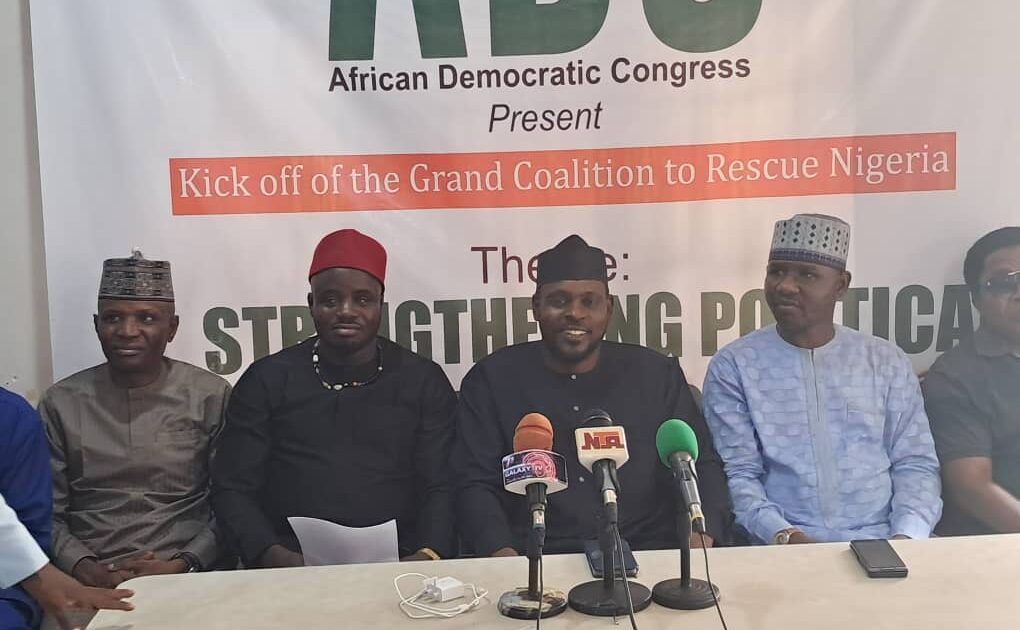The political landscape in Nigeria is bracing for a significant shift as the 2027 general elections approach, with the African Democratic Congress (ADC) emerging as a potential unifying force for the opposition. Balarabe Rufai, the party’s National Youth Leader, has framed the upcoming election as a battle between conscience and its absence, a stark contrast to the usual rhetoric of ethnic or regional divisions. This moral framing, coupled with the ADC’s deliberate positioning as a party transcending traditional fault lines, sets the stage for a potentially transformative election cycle. Rufai emphasizes the ADC’s commitment to youth empowerment and accountability, presenting the party as a vehicle for the frustrated aspirations of young Nigerians who feel neglected by the current administration.
The ADC’s appeal, according to Rufai, lies in its neutrality. Unlike other parties often perceived as being driven by religious, ethnic, or regional agendas, the ADC presents itself as a pan-Nigerian platform. This resonates with the coalition of opposition figures who have chosen the ADC as their preferred vehicle for challenging the incumbent President Tinubu. These figures, including prominent names like Atiku Abubakar and Peter Obi, bring significant political weight and diverse constituencies to the ADC, bolstering its potential to disrupt the established political order. Their choice of the ADC underscores the party’s perceived neutrality and its potential to unite a fragmented opposition. This strategic alliance aims to leverage the collective strength of diverse political forces, presenting a united front against the ruling party.
A key element of the ADC’s strategy is its focus on youth engagement and empowerment. Rufai highlights the party’s commitment to reserving 40% of all elected and appointed positions for young people, a bold move designed to address the long-standing marginalization of youth in Nigerian politics. He criticizes the current administration’s alleged inadequate investment in youth development, pointing to the comparatively small budget allocation for the Ministry of Youth as evidence of a lack of commitment. This emphasis on youth resonates with a demographic that constitutes a significant portion of the electorate and who are increasingly vocal about their desire for political and economic inclusion. The ADC is betting that this focus on youth will be a crucial factor in its success in the 2027 elections.
Rufai also emphasizes the party’s commitment to accountability and transparency. He asserts that the ADC will not tolerate the “business as usual” approach that has characterized Nigerian politics for so long. He stresses that the party’s leaders are driven by a desire to serve the people, not to enrich themselves, and that they will be held accountable by the party’s members, particularly the youth. This commitment to ethical leadership and internal accountability is intended to distinguish the ADC from other parties often plagued by allegations of corruption and self-dealing. This resonates with a growing public sentiment demanding greater transparency and ethical conduct from political leaders.
The Coalition for Nigerian Youths in Politics (CONYIP) has endorsed the ADC and its youth-focused agenda. CONYIP convener Nnamdi Ezemagu praised the appointment of Rufai as National Youth Leader, emphasizing the importance of empowering young leaders who have a proven track record of service within established youth organizations. This endorsement underscores the growing recognition of the ADC as a viable platform for youth political participation and reinforces the party’s message of generational change. The coalition’s call for other parties to emulate the ADC’s approach signals a broader shift in the political landscape, with youth increasingly demanding a greater role in shaping the country’s future.
The ADC’s emergence as a potential force in Nigerian politics is undeniably linked to the perceived failures of the current administration to address the needs and aspirations of the youth. Rufai’s criticism of the student loan scheme, which he claims has not reached many eligible students, reflects the widespread frustration among young Nigerians who feel betrayed by unfulfilled promises. The ADC is hoping to capitalize on this disillusionment by offering a genuine alternative, a party that prioritizes youth empowerment and offers a clear path to a better future. This strategic positioning aims to capture the significant youth demographic and translate their frustration into electoral gains. The 2027 elections are likely to be a critical test of whether the ADC can effectively channel this youth energy and translate it into tangible political change.














